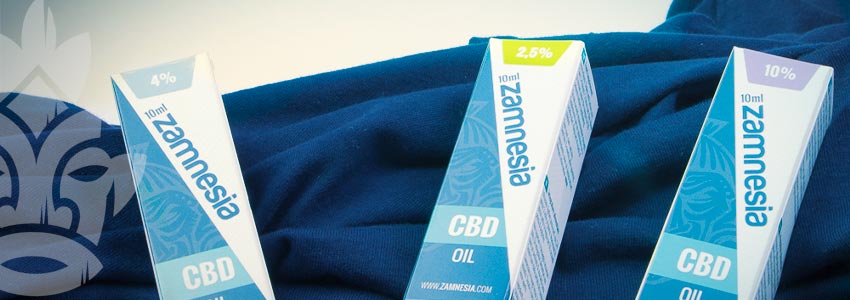Don't have an account?
Register NowYou have to add to cart at least 5 bottles or any program to make checkout.
- BlogExperiencing a Weed Hangover? Here's What to Do
Experiencing a Weed Hangover? Here's What to Do
Published: March 1st, 2021
Categories:
Cannabis Info • How To
For those who are of age, the feeling of an alcohol hangover is way too familiar. You’re dealing with a splitting headache, nausea, and lethargy all at the same time. These episodes are never fun. Similarly, weed hangovers are a real thing. But how are they different? What exactly are the symptoms? And what can you do to prevent and eliminate them?
What Is a Weed Hangover?
Weed hangovers encompass a range of symptoms and side effects that occur as a result of excessive cannabis use or cannabis withdrawal. For example, cannabis hangovers tend to affect those who overindulge in weed following a long period of abstinence. The body has a difficult time adjusting to the effects, hence the term "hangover". However, cannabis hangovers can affect regular users too. Luckily, weed hangovers aren’t as bad as alcohol hangovers; that's for certain. In most cases, you’ll just feel outstandingly lazy the next day.
What Causes a Weed Hangover?
The tricky thing about cannabis hangovers is that the causes (and effects) vary from person to person. In any case, here are some of the most common.
- Too Much THC
You’ll hear a lot of old-school smokers comment on how much stronger today’s weed is compared to their time. That’s because the THC content of today is about six times stronger than it was two decades ago. So, if, for example, you smoke a full-gram joint filled with 25% THC weed, you could be in for a rough time. It could be worse if you’re not used to consuming strains of such potency.
- Smoking Cannabis Too Often
Some people equate smoking weed to learning how to ride a bike. The sooner you get used to the “balancing act”, the easier it is to make it a part of your waking life. But once you pause smoking, that’s when things can get difficult. Your next smoke session after the break could pose problems for you the following morning.
- Unhealthy Lifestyle
A weed hangover may not be horrible, but an unhealthy lifestyle may worsen it. If you tend to indulge too much or you love mixing your recreational substances, you could run into some issues. They do say too much of a good thing is bad. That is certainly true in this case.
- Consumption Method
Do you love your cannabis in vape form? Or do you enjoy it infused in your favourite baked goods? Your preferred method of consumption may contribute to how you feel the following day. It’s all a matter of getting used to the method you think fits you best. It won’t hurt to switch things up from time to time, but perhaps enjoy one consumption method at a time. Note that certain forms of cannabis—namely, concentrates and edibles—exert a much more potent experience than smoked or vaped flower, and therefore are even more likely to contribute to a weed hangover.
- Munchies
For some people, a munchies attack after a smoke session is almost automatic. It’s how stoner delicacies like bacon-wrapped mozzarella sticks and pizza popcorn come to fruition. But that fat and sugar overload may also worsen the weed kick. You’ll likely feel it the next day, a few hours after your body has passed it into your bloodstream.
Especially if you’re buying from an unknown source, there’s a good chance that your product wasn’t properly cultivated. That compromises its quality, which may lead to off-putting side effects. Subpar products may be improperly cured or contain residual nutrients, pesticides, and other chemicals. If you’ve had bad experiences with a particular source, get a new one or grow your own weed.
What Are the Symptoms of a Weed Hangover?

We briefly touched on the common symptoms of a weed hangover in an earlier section. Now, let’s get into the specifics.
- Headaches
So, you’ve enjoyed the entire night with a pleasant head high. That script can easily be flipped the next day and turn into an annoying headache. Headaches are one of the most common symptoms of a cannabis hangover. The good news is, these are mild episodes that dissipate after a few hours.
- Foggy Brain
Have you woken up in a dazed and confused state? The wires in your head don’t seem to be connected. Your whole vibe feels incoherent. That, my friend, is a classic case of brain fog. What’s challenging about this unpleasant state is that it’s difficult to snap out of. It could be a vexing feeling, especially if you’re preparing for something important like a meeting or a presentation.
- Feeling Dehydrated/Dry Mouth & Eyes
You know you’ve had a wild night if you wake up with a dry mouth and irritated eyes. This isn’t a problematic situation per se, and it’s nothing some simple home remedies can’t fix. Still, having a dry, dehydrated feeling in your eyes and mouth upon waking isn’t the ideal way to start the day.
- Light Nausea
Sure, nausea from a weed hangover isn’t as intense as that which you'd experience from drinking too much. But, having the urge to throw up is never a pleasant feeling. Just like the headaches, this feeling will be gone after a few hours. Once it is, you can carry on with your day.
Weed Hangovers vs Alcohol Hangovers

The section above laid out the symptoms that one tends to go through with a weed hangover. As you can see, they are not very debilitating. Now, here are the symptoms people experience during a regrettable hangover from drinking:
- Visual and spatial difficulties
- Nausea and vomiting
- Concentration and memory problems
- A much nastier headache (which can last an entire day)
- Trouble sleeping
Studies point to the acetaldehyde in alcohol as the culprit behind the severity of hangovers. Acetaldehyde is a primary component of ethanol, which is what alcoholic beverages are mainly composed of. That concoction of chemicals may also lead to hormonal and immune problems.
What Are the Best Ways to Recover From a Weed Hangover?

So, you’re dealing with a weed hangover and it’s been hindering you from getting a head start on your day. Here are some measures you can take to feel better.
1. Rehydrate and/or Drink Coffee
Before you do anything else upon waking, rehydrate yourself. Then, make yourself a cup of coffee. The caffeine jolt that follows should help to clear away some of the cobwebs in your head. But remember to drink some water first to avoid dehydrating yourself further.
2. Eat a Wholesome Meal
Infuse your meals with some potassium; a strawberry and spinach salad is a good place to start. If you’re too exhausted to do some chewing, a good old banana smoothie should do the trick.
3. Shower
Showers are a refreshing way to wash the sleep off your body. The hangover from the night before should follow suit. You can start with a cold burst for the first 30 seconds to a minute, then warm it up afterward.
4. Use CBD Oil
If you’re going through an unpleasant high, cannabidiol is known to be a good equaliser. It involves an intricate process within the endocannabinoid system, but, in a nutshell, CBD oil helps to balance things out. Consult your doctor to find the ideal dosage.
5. Combat Specific Symptoms
Below are some ways to address specific symptoms associated with weed hangovers. These methods are easy, safe, and can all be performed in the home.
- Eye Drops to Soothe Dry Eyes
Eye drops are the ultimate solution for dry eyes. But the important thing here is to keep your eyes relaxed. So, for the time being, keep yourself away from screens and blue light.
- Cold Compresses and Temple Massages to Ease Headaches
Headaches from a weed hangover could also be a result of stress. If so, a cold compress should provide relief. Temple massages are equally effective. You can do both for enhanced results.
- Go for a Brisk Walk (Or Do Some Yoga) to Get Rid of Brain Fog
If you want your brain fog gone way ahead of time, try going for a brisk walk. Getting your blood pumping while experiencing a change in scenery should help out. A nice yoga session is equally beneficial.
How to Prevent a Weed Hangover

Finally, here are some preventive measures to keep that weed hangover away.
1. Choose a Strain With Low to Moderate THC
Not everyone can handle high-THC strains. So, be safe and go with variants with low to moderate THC levels. If you’re looking for some options to start with, here’s one with medium THC levels (Monster Dwarf Auto) and one with low THC levels (CBD Fix Auto).
2. Don't Combine Substances
If you’re going with alcohol, stick with alcohol. The same rule applies to weed. Combining substances may not be a good idea, and could lead to a bad hangover. Avoid doing this.
3. Start Early, Finish Early
If you prefer your weed strong, you might want to start your smoking session early. Ideally, you’ll want to give a three-hour lead time before going to bed. This allows the effects of the THC to dissipate.
4. Stay Hydrated
We can’t stress this enough. Mild dehydration is the most obvious symptom of a weed hangover. Prevent that from happening by supplying yourself with a generous amount of H₂O.
Weed Hangovers — The Bottom Line
Experts have yet to get to the bottom of weed hangovers and how exactly they happen. What we know for sure is that they're most often a result of excess consumption. Ultimately, it’s all about taking everything in moderation—a concept that applies to pretty much everything across the board in life. It pays to know your limits, and the consequences when you exceed them.





